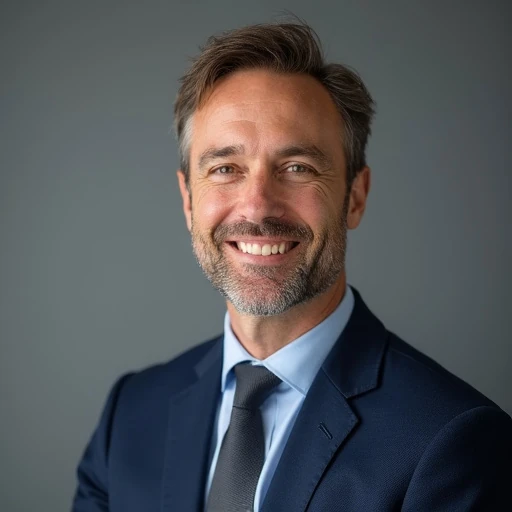Oaktree Capital Management, a global alternative asset manager, has provided a significant debt financing commitment to Arzan Investment Management (AIM). The funding is designated to support AIM's strategy of acquiring hospitality assets throughout the Gulf region, signaling growing confidence from international investors in the Middle East's private credit and real estate markets.
Key Takeaways
- Oaktree Capital Management has provided debt financing to Arzan Investment Management (AIM), a Gulf-focused investment firm.
- The funds are intended for the acquisition of hospitality properties across cities in the Gulf Cooperation Council (GCC).
- AIM has already completed two hotel deals in Dubai valued at approximately $400 million and has identified a further $1 billion in potential opportunities.
- This agreement highlights a broader trend of global asset managers deploying private credit funds in the Middle East, a region previously seen primarily as a source of capital.
Details of the Financing Agreement
Oaktree Capital Management, which oversees approximately $209 billion in assets, has entered into a strategic financing agreement with Arzan Investment Management. While the specific financial terms of the deal were not made public, the commitment provides AIM with substantial capital to expand its portfolio in the hospitality sector.
AIM specializes in real estate, hospitality, and credit strategies within the Gulf region. This new funding will directly fuel its acquisition pipeline, with a focus on key urban centers like Dubai. The firm has already established a footprint in the city's competitive hotel market.
By the Numbers
- $209 Billion: Oaktree Capital Management's approximate assets under management.
- $400 Million: The value of two hospitality deals already completed by Arzan Investment Management in Dubai.
- $1 Billion: The value of additional investment opportunities AIM has identified across the Gulf region.
The partnership is seen as a pivotal moment for the regional market. According to Arzan Investment Management's chairman, the deal reflects a maturing investment landscape.
The Oaktree deal marks “an important step in the institutionalization of the region’s market” and underlines the “attractiveness of the GCC’s hospitality sector to global capital.”
Growing Investor Appetite for Gulf Hospitality
The Gulf region, and particularly Dubai, has become a major destination for institutional capital. The emirate’s status as a global hub for tourism, finance, and luxury living has made its real estate and hospitality sectors highly attractive to international investors seeking stable, high-growth opportunities.
The consistent influx of tourists and business travelers has created strong demand for hotel accommodations, from luxury resorts to business-focused hotels. This sustained demand provides a solid foundation for investment, encouraging firms like Oaktree to provide capital for expansion projects.
What is the GCC?
The Gulf Cooperation Council (GCC) is a political and economic alliance of six Middle Eastern countries: Saudi Arabia, Kuwait, the United Arab Emirates, Qatar, Bahrain, and Oman. The bloc aims to foster cooperation in economic, financial, and political affairs.
This trend is not limited to private credit. Recently, reports emerged that Brookfield Asset Management was exploring the purchase of a major hotel on Dubai’s iconic Palm Jumeirah, further demonstrating the interest of large-scale asset managers in the city's hospitality assets.
Private Credit Finds a New Home in the Middle East
Historically, global asset managers viewed the Middle East primarily as a source for raising capital for their funds. Sovereign wealth funds and high-net-worth individuals in the region were key limited partners. However, a significant shift is underway, with a growing number of firms now looking to deploy their private credit funds directly into the region.
Private credit, which involves non-bank lenders providing loans to companies, offers an alternative to traditional bank financing and public debt markets. This form of financing is becoming increasingly crucial for funding real estate acquisitions, corporate expansion, and infrastructure projects in the Gulf.
The Oaktree-Arzan deal is a prime example of this evolving dynamic. Instead of just seeking funds from the region, Oaktree is actively investing in it, capitalizing on the need for flexible and sophisticated financing solutions.
A Widening Regional Trend
Oaktree is not the only major financial player expanding its private credit operations in the Middle East. Other global firms are making similar strategic moves, indicating a broad-based confidence in the region's economic prospects.
Notable developments include:
- Goldman Sachs: The asset management division of Goldman Sachs Group Inc. recently partnered with Saudi Arabia’s Public Investment Fund (PIF). The PIF will anchor a series of new funds focused on private credit and equity strategies across all six GCC states.
- 17Capital: This firm, which is majority-owned by Oaktree, announced its expansion into Dubai in 2024. The move was designed to capitalize on the growing demand for private credit and other alternative financing solutions in the region.
These initiatives show that global financial institutions are establishing a more permanent and active presence in the Middle East. They are building local teams and creating dedicated funds to invest in regional opportunities, moving beyond a fly-in, fly-out fundraising model. This institutionalization is expected to bring more liquidity, transparency, and sophisticated financial products to the Gulf's markets.





